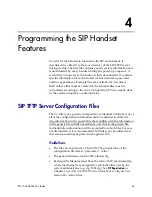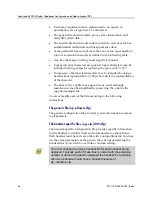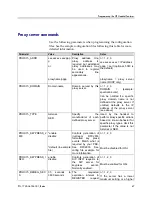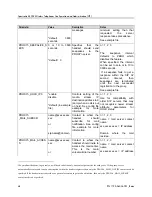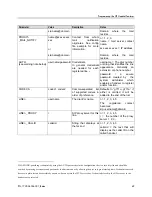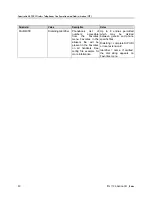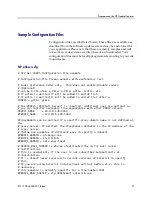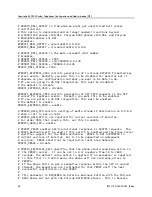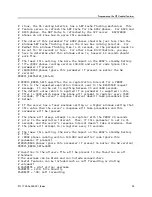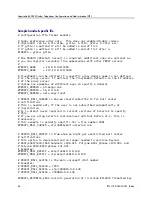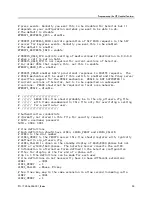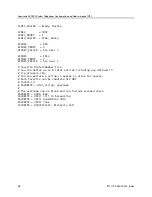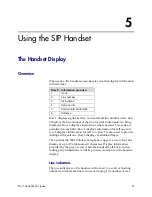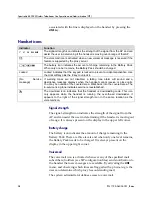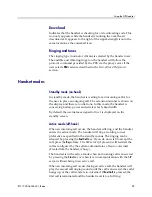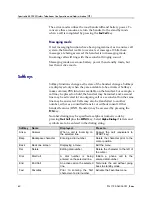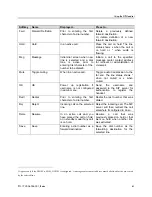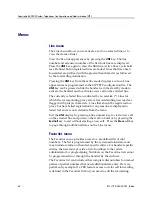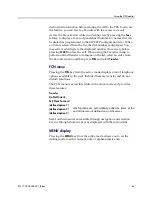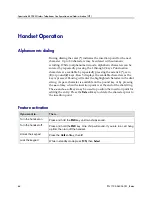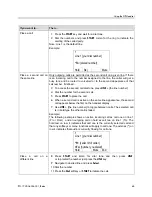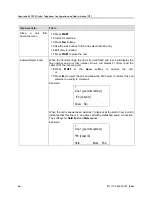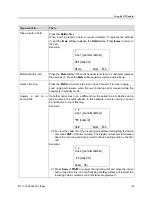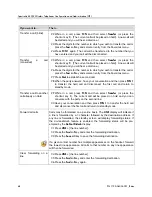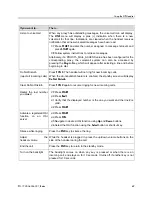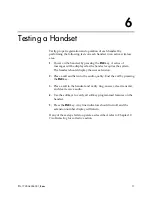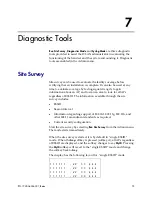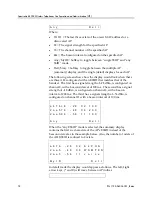
Using the SIP Handset
PN: 1725-36034-001_B.doc
59
Download
Indicates that the handset is checking for or downloading code. This
icon only appears while the handset is running the over-the-air
downloader. It appears to the right of the signal-strength icon in the
same location as the voicemail icon.
Ringing and tones
The ringing type (normal or vibrate) is selected by the handset user.
The audible and vibrating ringer on the handset will follow the
protocol command provided by the PBX via the proxy server if the
user selects
PBX
cadence described in the
User-defined Preferences
section.
Handset modes
Standby mode (on-hook)
In standby mode, the handset is waiting for an incoming call or for
the user to place an outgoing call. The extension number is shown on
the display and there is no dial tone. In this mode, the handset is
conserving battery power and wireless LAN bandwidth.
By default, the username assigned to line 1 is displayed on the
standby screen.
Active mode (off-hook)
When an incoming call occurs, the handset will ring, and the handset
enters the active mode. The handset will ring according to user
preference as specified in the standby menus. The ringing can be
silenced by pressing the
End
Call
key. If you do not wish to accept the
call, press the
Rej
softkey. The SIP server (if present) will redirect the
call as configured by the system administrator, often to voicemail.
(Treated like the handset is busy.)
The handset is in the active mode when an incoming call is answered
by pressing the
Start
key or when it is in communication with the SIP
server without being in an active call.
When an incoming call occurs during an active call, the handset will
play the second call ringing sound until the call is answered, the caller
hangs up, or the call transfers to voicemail. If
End Call
is pressed, the
first call is terminated and the handset reverts to a full ring.

